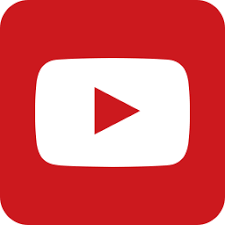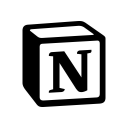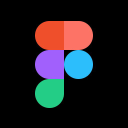How I Ran Tests With Hundreds of Users And Built A Social Messaging App
Hello! My name is Diederik and I am the founder of Heartstring. I recently launched a new messaging app called Heartstring. It helps you quickly connect and exchange thoughts with people nearby or worldwide. The app runs on a freemium model and is a combination of messaging, news, and social search. It went live two weeks ago and has a couple of hundred users so it’s still very early.
The idea is to create one super app that can function as a place where you read up on local news, connect at a festival, get local insights, see what’s going on downtown, or quickly connect and exchange thoughts with others on different topics worldwide. I went live with the first version in August of 2022 and you can watch a video here.

What's your backstory and how did you come up with the idea?
During the lockdowns, like many, I felt socially isolated. Not only was it difficult for me to exchange thoughts with others easily outside existing social apps, but I also got frustrated with never knowing what was happening around me or in a specific city. I ended up moving to an island for a while where I worked on the app.
I had my ‘aha’ moment when I tried to connect with people on the island, only to realize that once again, I was stuck scrolling through Facebook Groups, Reddit, or finding secret Whatsapp Groups just to connect with others around me. It felt antiquated to me so I decided to take that as my starting point.
With over 7 years of marketing experience in B2C apps, I knew a lot about apps, the challenges they came with, and the opportunities that were there. Because I had seen friends outsource development work (only to come out of the entire experience worse than they started) I decided to just code it up myself.
I had some front-end development experience but was far from a developer. Though not easy, I managed to ideate, design, and code up the app (full stack) - but it did take me a lot longer than I had hoped. All in all, it took me about 6 months from start to finish. To support myself I was still doing consulting work on the side for a software company.
Take us through the process of designing, prototyping, and manufacturing your first product.
The entire product was built on first principles: trying to look for what I knew to be true in terms of how people use messaging and social apps and go with that. I studied hundreds of apps, and best UX/UI design practices, and ran tests with hundreds of users.
I did UI tests with my 63-year-old mom. If she knew how to do things on the app, I knew the core concept was at the very least, something people would ‘get’ instantly.
Above all, I wanted it to be simple, fast, and easy to understand. That is why I did UI tests with my 63-year-old mom. If she knew how to do things on the app and what the purpose of it was, I knew the core concept was at the very least, something people would ‘get’ instantly.
Eventually, I managed to hit a sweet spot in terms of concept, design, and backend setup that worked for me as a solo founder. It took me roughly 15 iterations to get there, and 2 big, rigorous pilots with users to know I was on the right track.

Describe the process of launching the business.
Because Heartstring just started it’s too early to talk about the launching process but I can share some of my initial thoughts on it. I made some basic mistakes during the development phase by not collecting email signups beforehand. That being said, the app is now being shared by users and word of mouth is beginning to spread. The first users were friends and people in local expat groups here in Barcelona where I am currently living.
The problem with app development is that both Apple and Google are so strict these days that you can’t just casually launch an app - it needs to be compliant with tons of rules and be incredibly user-friendly. That is why I focused on building a good product first, and instead of doing one BIG launch, just do a soft launch, look for bugs, collect user feedback, and then improve it.
This is essentially what I have done so far and what I intend to keep doing. I want to do countless small relaunches, each one being slightly better than the previous one with small adjustments based on user feedback. As for costs, I was ( and still am) a one-man-army so I have zero costs in terms of marketing, development, or design right now.
The entire business model was never built on paid acquisition, and I like the challenge of needing to be vigilant and creative to get the word out and have people try the app.
Since launch, what has worked to attract and retain customers?
Essentially engaging with users and asking them for feedback and answering questions works great. Because the app is based on a freemium model it is relatively easy to get users. To make sure people stick around I have become a fundamentalist in this stuff based on my marketing experience: you either made something people love or you didn’t and now you need to iterate until you do.
You can’t magically expect something that fundamentally doesn’t make sense to suddenly work. That’s why my main ‘trick’ to keep users is to engage with them, improve the product, and make data-informed decisions on what to do next. If my hypotheses are proven correct, the app should be self-sustaining pretty fast with smaller communities and people being on there keeping it dynamic and engaging.
Either way, what I would recommend all founders to do: is engage with their users, get as much data as they can to make informed decisions, and then keep improving their value proposition in fast, quick iterations. You will rarely if ever, hit a homerun the first time.
How are you doing today and what does the future look like?
As mentioned before the app is based on a freemium model so I am not making money with it yet. The entire premise is that I will be able to iterate to hit a sweet spot in the consumer needs, and then scale the company exponentially without having to charge users upfront or spend money on acquisition. With decreasing consumer purchasing power, I believe that freemium models will be having a major comeback.
Right now, most people find the app as a result of friends telling them or sharing it on their socials. The marketing strategy is to build out product-led growth like in-app shares, lowering acquisition costs to $0 if that works.
I focus on different channels at a time, with small communities and expats on Facebook and Reddit being the first go-to-market group. I also intend to promote it more at local events soon and will be doing more social content on Youtube and Tiktok in the near future.
On average, people open the app 6-8 times a day and spend about 3-4 minutes there. I don’t know what those numbers will look like when more content is there, but it will be interesting to find out!
Ultimately, my goal is to build a product that people love and scale the company to millions of users worldwide. I know that sounds overly ambitious and naive, but it’s the only way a model like this can work. That being said, for now, my focus is on doing the best I can daily, making small improvements in the product, marketing strategy, and overall online presence of the company.
Through starting the business, have you learned anything particularly helpful or advantageous?
Again, I made stupid mistakes. One of the biggest mistakes I made was not getting involved with local groups fast enough to get users before finishing the development of the app. That would have shown that I had some significant use cases, and I would be able to iterate the value proposition better based on actual user feedback, not controlled pilots which I did later.
Another big lesson is that being a solo founder is, mentally, extremely taxing. You need to believe in what you are trying to create because people will think you are an idiot. I think what kept me going was an intrinsic interest in trying to solve the problem that I perceive, and a certain level of insecurity in my abilities, pushing me harder to get better. I also do lots of workouts and hikes to quiet my mind when it all feels overwhelming.

What platform/tools do you use for your business?
For development work I use Visual Studio Code, Xcode, and Firebase. I also used a UI/UX app builder called Flutterflow. The app was made with flutter, javascript, and node. Quantitative UX/UI feedback was done with Pollfish. The website was done in Webflow. Promotional videos with Veed, and design work with Figma. As for process management, I’m a hard-core user of Notion.

What have been the most influential books, podcasts, or other resources?
One of my biggest influencers has been David Heinemeier Hansson, the co-founder of Basecamp, pioneer of remote work, self-taught race car driver, and founder of Ruby on Rails. I have tons of respect for his contrarian (but sound) views on business, money, work-life balance, and startups. Other than that I enjoy listening to Tom Bilyeu to keep my mind sharp. These days I mostly read books on computer science and growth hacking. But I also enjoy rereading Paul Graham's essays on startups and more general sources on building great products and talking to customers.
Advice for other entrepreneurs who want to get started or are just starting out?
I would advise anyone looking to build something to just get started but make sure it’s in a field you are genuinely interested in. It’s not easy to create something out of nothing, and there are no guarantees of success so you might as well make sure that you are at the very least, moving in the right direction.
Other than that, make sure that your business model is profitable and clear from the start, and talk to as many users and customers as you can.
Where can we go to learn more?
Make sure to try out the app, which is free to download and available on iOS and Android. It recently won #5th place on Product Hunt too!
If you have any comments or questions drop them below.

Download the report and join our email newsletter packed with business ideas and money-making opportunities, backed by real-life case studies.

Download the report and join our email newsletter packed with business ideas and money-making opportunities, backed by real-life case studies.

Download the report and join our email newsletter packed with business ideas and money-making opportunities, backed by real-life case studies.

Download the report and join our email newsletter packed with business ideas and money-making opportunities, backed by real-life case studies.

Download the report and join our email newsletter packed with business ideas and money-making opportunities, backed by real-life case studies.

Download the report and join our email newsletter packed with business ideas and money-making opportunities, backed by real-life case studies.

Download the report and join our email newsletter packed with business ideas and money-making opportunities, backed by real-life case studies.

Download the report and join our email newsletter packed with business ideas and money-making opportunities, backed by real-life case studies.







